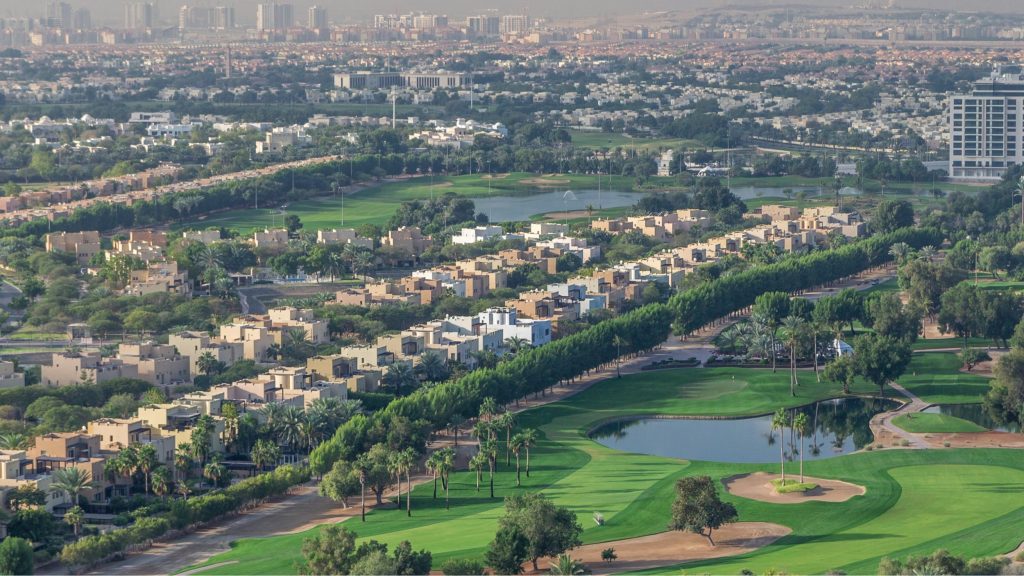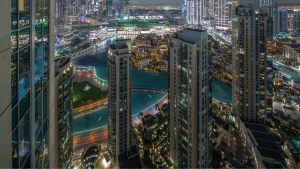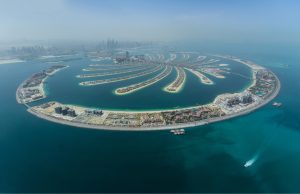Is 2024 the opportune time to delve into Dubai’s burgeoning property market? With the city poised for significant growth amidst global events like COP28 driving economic prosperity and visitor influx, investing in Dubai’s real estate sector warrants thoughtful consideration. But, amidst rising prices and evolving market dynamics, how can investors discern the optimal strategy? This article delves into the intricacies of Dubai’s real estate landscape, offering insights to help you navigate the decision-making process and seize lucrative investment opportunities in 2024.
Understanding Dubai’s Real Estate Dynamics
Economic Growth: With the UAE’s economy projected to expand by 3.5% in 2024 and a promising outlook for subsequent years, Dubai’s real estate market stands to benefit from this upward trajectory. A forecasted 17.6% growth over the next five years signals potential appreciation in property values, presenting an enticing prospect for investors seeking capital gains.
Population Surge: Dubai’s population has surged by 8% in the last five years, reaching 3,008,000 in 2023. This upward trend, coupled with a 1.48% projected increase in 2024, underpins a robust demand for rental properties. With higher GDP per capita indicating increased purchasing power among residents, investors can anticipate sustained demand for rental accommodations, bolstering rental yields.
Price Escalation: Dubai’s real estate prices have experienced a steady uptick, with an annual rise of approximately 17%. Luxury segments have witnessed even more pronounced growth, with average prices per square foot soaring to AED 3,870. Despite this escalation, buoyant demand, evidenced by a 37% surge in sales volume in August, continues to drive market momentum, particularly in sought-after locales like Dubai Harbour and Palm Jumeirah.
Rental Yield Potential: Dubai’s rental yields remain compelling, averaging 5.8% and ranking among the highest globally. Prime areas like Midtown lofts boast yields of approximately 5.43%, attracting investors with the promise of stable rental income streams. As Dubai’s allure as a tourist and business destination persists, rental demand is poised to remain robust, further bolstering rental yields.
Investor-Friendly Environment: Dubai’s stable political landscape, complemented by initiatives like the Golden Visa program and favorable regulations for foreign investors, fosters a conducive environment for real estate investment. The absence of personal income tax, capital gains tax, or annual property taxes underscores Dubai’s appeal as a tax-efficient investment destination, amplifying investor returns.
Strategic Advantages of Investing in Dubai
Capital Appreciation: Dubai’s property market offers promising returns on investment, with popular areas yielding returns ranging from 6-7%. Foreign investment exceeding $50 billion in 2023 underscores the market’s potential for substantial capital appreciation, particularly in high-demand enclaves like Dubai Marina and Palm Jumeirah.
Tax Incentives: Investors in Dubai benefit from a tax-friendly regime, with no personal income tax, capital gains tax, or annual property taxes. This advantageous tax framework allows investors to retain the full proceeds of their investments, enhancing overall profitability and returns.
Diverse Property Portfolio: Dubai’s real estate market presents a diverse array of investment options catering to various budgets and preferences. From opulent villas to affordable apartments and commercial spaces, investors enjoy a plethora of choices to align with their investment objectives and lifestyle aspirations.
Off-Plan Opportunities: Off-plan properties represent an attractive avenue for investors, offering affordability and potential for higher returns. With lower price points compared to ready properties and flexible payment plans, off-plan investments enable investors to capitalize on pre-construction prices and secure profits prior to project completion.
Golden Visa Privileges: Dubai’s investor-friendly policies extend to long-term visas, including the golden visa, granted to investors purchasing select assets valued at AED 2 million or more. This provision affords stability and convenience for long-term residency, further incentivizing real estate investment in Dubai.
Navigating the Investment Journey
Embarking on a successful investment journey in Dubai’s real estate market necessitates a strategic approach:
1. Define Investment Goals: Clarify your investment objectives, whether it’s rental income, capital appreciation, or a blend of both, to tailor your investment strategy accordingly.
2. Conduct Market Research: Analyze market trends, evaluate historical sales and rental data, and stay abreast of emerging developments to inform your investment decisions.
3. Identify Prime Locations: Consider infrastructure projects, business hubs, and demographic trends to pinpoint areas with strong growth potential and demand dynamics.
4. Select Property Types: Choose between luxury villas, apartments, or off-plan ventures based on your investment horizon, target tenants, and financial preferences.
5. Assess Developer Reputation: Vet developers’ track records and credentials to ensure reliability and quality assurance throughout the investment process.
6. Explore Financing Options: Explore mortgage options for non-residents, comparing rates, terms, and eligibility criteria to secure favorable financing









